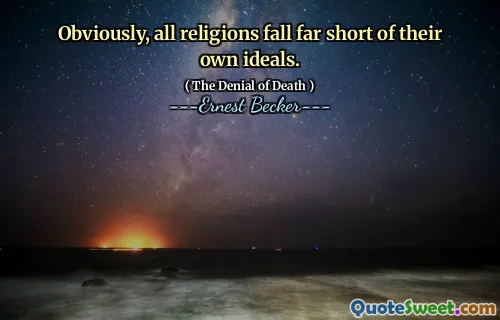"The Denial of Death" by Ernest Becker explores the profound impact that the awareness of mortality has on human behavior and culture. Becker argues that the fear of death drives many of our actions and societal constructs. He suggests that humans create systems of meaning, such as religion, culture, and heroism, to provide a sense of significance in the face of inevitable death. This life-affirming struggle is a central theme in understanding human psychology and motivations.
The book discusses the conflicts between our desire for immortality and the reality of our physical existence. Becker posits that much of human behavior can be seen as a defense mechanism against the anxiety of mortality. He details how people often deny or repress their fear of death, leading to various forms of behavior that can be seen in both individuals and societies.
More »
Today Birthdays
1729 -
Edmund Burke
1949 -
Haruki Murakami
1954 -
Howard Stern
1876 -
Jack London
1993 -
Zayn Malik
1951 -
Kirstie Alley
1863 -
Swami Vivekananda
1923 -
Alice Miller
1987 -
Naya Rivera
1825 -
Brooke Foss Westcott
1944 -
Joe Frazier
1951 -
Rush Limbaugh
1964 -
Jeff Bezos
1978 -
Jeremy Camp
1628 -
Charles Perrault
1856 -
John Singer Sargent
1970 -
Kaja Foglio
1953 -
Rick Santelli
1986 -
Gemma Arterton
1968 -
Raf Simons
1958 -
Christiane Amanpour
1966 -
Olivier Martinez
1996 -
Ella Henderson
1917 -
Maharishi Mahesh Yogi
1949 -
Ottmar Hitzfeld
1928 -
Ruth Brown
1968 -
Heather Mills
1946 -
George Duke
1968 -
Rachael Harris
1923 -
Ira Hayes
